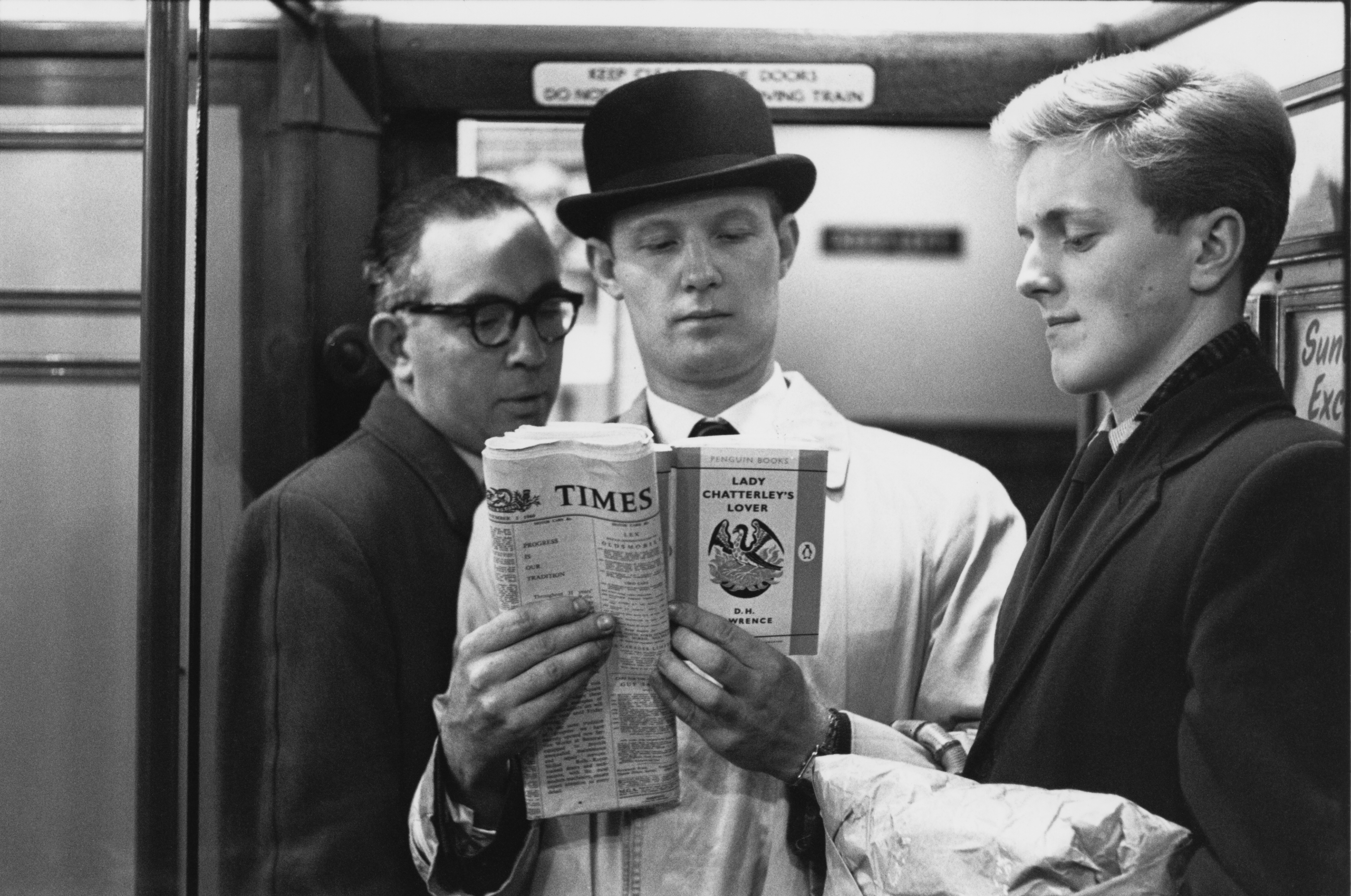Ban Banned Books Week
This annual festival of cloying liberal self-satisfaction is simply the worst


A free daily email with the biggest news stories of the day – and the best features from TheWeek.com
You are now subscribed
Your newsletter sign-up was successful
Of all the fake holidays competing for attention on our calendars and social media "feeds" these days, far and away the worst is Banned Books Week, that annual festival of cloying liberal self-satisfaction beloved by people who like the idea of reading more than they do actually sitting down with Edward Gibbon or even Elmore Leonard. I wish I could say that Banned Books Week, which blessedly ends tomorrow, is so stupid that it makes my brain hurt. It's actually so stupid that it makes me wish I didn't have a brain.
And it's absolutely inescapable. All this week in every newspaper and magazine and website (including The Week), there have been endless tributes and listicles featuring Big Hard Sex Criminals, among other classics of our literature, and reports on the non-existent status of censorship in this country. When I close my screen with a throbbing headache and an urgent death wish and head toward the bar down the street, I find that the local bookstore in the small Michigan town where I live has a window display with a poster urging me to "Read a Banned Book!"
Which one? The Protocols of the Elders of Zion? David Irving's revisionist histories of the Second World War? William S. Burroughs' sustained fantasy of torture, sadomasochism, animal cruelty, and child rape, Naked Lunch? The Douay-Rheims edition of the Bible?
The Week
Escape your echo chamber. Get the facts behind the news, plus analysis from multiple perspectives.

Sign up for The Week's Free Newsletters
From our morning news briefing to a weekly Good News Newsletter, get the best of The Week delivered directly to your inbox.
From our morning news briefing to a weekly Good News Newsletter, get the best of The Week delivered directly to your inbox.
In my experience, those with the strongest emotional investment in Banned Books Week tend to be people whose idea of literature is something called "Y.A.," which they can continue to enjoy well into their 20s, plus whatever they found themselves forced to slog through as liberal arts majors in college in between tweeting and watching prestige cable and old Buffy reruns on Netflix. These are people with cartoonish conceptions of history, in which the vast sweep of human affairs, the march of technological development, the fluctuations of wealth, the accumulations of capital, the misery of wars, the famines and floods and massacres, have been an inexorable progression culiminating in America in 2017, where reading a pornographic pastiche of children's fiction called 50 Shades of Grey is an inalienable right.
Naturally proponents of this movement, which is really a marketing campaign for publishers, don't actually mean that you should pull up Amazon or march down to your local bookseller and get a copy of Mein Kampf. They are thinking of different "banned books." Unfortunately for them, when you actually look at the lists, you realize that virtually none of the books being trotted out has ever truly been banned. It is not an act of censorship in any meaningful sense for a school librarian to decide that, on balance, it would be better if children did not have unfettered access to lurid, often illustrated, stories about drug use and underage sodomy. Increasingly, many of the works in question are not even proper books but rather so-called "graphic novels," which are novels in the same sense that the MoonLite BunnyRanch in Mound House, Nevada, is a farm. What are these things doing in school libraries in the first place except contributing to the now probably irreversible dumbing down of American education?
This is why the Banned Books industry has settled on the cloying neologism "challenged" as an appellation for books that were never forbidden publication or even officially removed from shelves anywhere, much less "banned." What they mean by "challenged" is that somewhere, someone is documented as having said something negative about the work in question and suggested that people ought not to read it.
"Challenged" as an equivocation is the kind of dodge that only someone who never reads would be dumb enough to find clever. It actually gives the game away. If no book can ever be "challenged," then the act of reading itself is a meaningless, mechanical, uncritical exercise of no value to anyone. If the mind can only respond to a book positively, we might as well pass the time by sniffing paint or counting ceiling tiles or digging ditches and filling them in again. This is a state of affairs far more tyrannical than any imaginable censorship regime.
A free daily email with the biggest news stories of the day – and the best features from TheWeek.com
Banned Books Week is not a celebration of the act of reading. It is a declaration of war against it. It is an assault on the intellect by childish imaginations. It should be met with absolute resistance.
Matthew Walther is a national correspondent at The Week. His work has also appeared in First Things, The Spectator of London, The Catholic Herald, National Review, and other publications. He is currently writing a biography of the Rev. Montague Summers. He is also a Robert Novak Journalism Fellow.
-
 Political cartoons for February 7
Political cartoons for February 7Cartoons Saturday’s political cartoons include an earthquake warning, Washington Post Mortem, and more
-
 5 cinematic cartoons about Bezos betting big on 'Melania'
5 cinematic cartoons about Bezos betting big on 'Melania'Cartoons Artists take on a girlboss, a fetching newspaper, and more
-
 The fall of the generals: China’s military purge
The fall of the generals: China’s military purgeIn the Spotlight Xi Jinping’s extraordinary removal of senior general proves that no-one is safe from anti-corruption drive that has investigated millions
